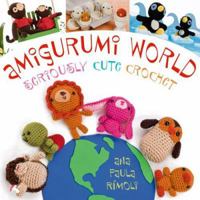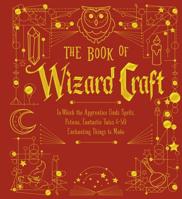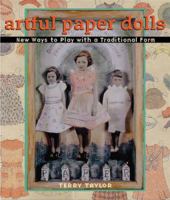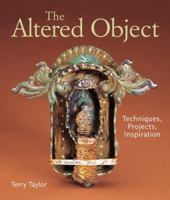The New Crochet: 40 Wonderful Wearables
Select Format
Select Condition 
You Might Also Enjoy
Book Overview
From the catwalks of Europe to the trendiest catalogs and boutiques, crochet is making a very fashionable resurgence. But even with all that popularity, there's no need to pay designer prices for chic crocheted clothes. These stylish, contemporary patterns come from a variety of artists, and they're far from those musty designs Grandma used to make. And because most use familiar and easy to learn stitches, you can easily make them yourself with the...
Customer Reviews
Rated 2 starsA Bit Disappointing
Was super excited about this book after reading other reviews, but I found the majority of projects in this book are out dated and not something wearable relative to todays fashion. A tote bag, the wrap on the cover, and perhaps the shawl were the only items I might consider making.
4Report
Rated 5 starsExquisite, trendy and easy crochet
Finally, stylish crochet. NOT like your grandma's. The cover sarong is spectacular. Designer Nancy Minsky rocks! The jean skirt is so in! The designs by Nancy Minsky are stylish, trendy and hip. Her directions are easy to follow. You can see the European flair this designer exhibits. And, her suggestions are very helpful. The little green and white bag is a cute pattern also and great for jewelry while traveling. I am a novice,...
1Report
Rated 4 starsI can't believe the other ratings...
I had trouble swallowing the reviews that gave this book a one or two star rating. 1st of all no need to spend $25 as it can be gotten for less and 2nd of all it is worth the money. The only reason I gave 4 stars instead of 5 is because I expected more clothing. I would label this more towards the wearable accessories book. A couple of hats & bags, cute bracelet, belts, scarves, ponchos(of which I am not a big fan),...
1Report
Rated 4 starsCrochet Book
The book has beautiful illustrations of some unusual designs. I haven't yet made any of the items so I can't speak to how good the directions are, but in general I'm pleased with the book and looking forward to many hours of crochet pleasure.
0Report
Rated 5 starsHOT HOT HOT Crochet
This is a great book, even if you don't know how to crochet you will be able to learn how with this books fabulous "basics" section. And the patterns are very modernized, you get ponchos, several types of bags, felted bag, belts, a piece of jewelry, scarves etc. Another great thing is all the techniques that are covered with this book , again making it an excellent source for both the beginner and advanced crocheter.
0Report























































